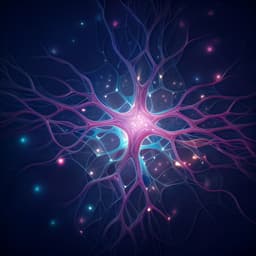
Medicine and Health
Cingulate dynamics track depression recovery with deep brain stimulation
S. Alagapan, K. S. Choi, et al.
Discover groundbreaking insights into treatment-resistant depression through deep brain stimulation of the subcallosal cingulate. This transformative study, conducted by a team of experts including Sankaraleengam Alagapan and Helen S. Mayberg, reveals how innovative biomarkers can personalize recovery trajectories for patients. Learn how 90% of participants showed a robust clinical response in just 24 weeks!
~3 min • Beginner • English
Related Publications
Explore these studies to deepen your understanding of the subject.







